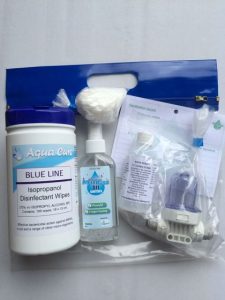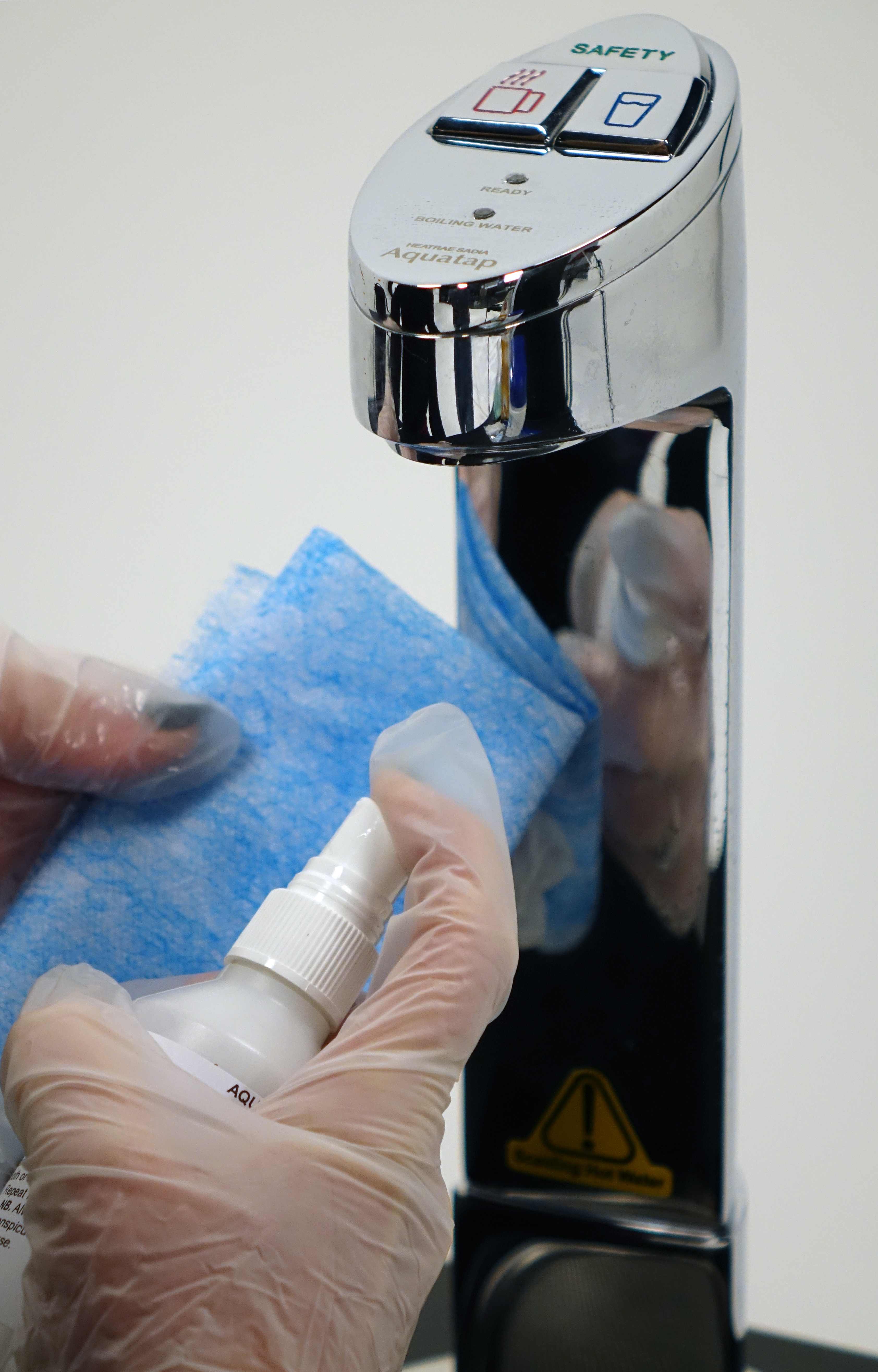Water cooler and hot tap hygiene care in epidemic
As we face more uncertain times with the rise in coronavirus cases we wait to hear from the government on new measures and guidelines to help halt the rise in Covid cases, and health and hygiene has never been so critical.
Social distancing, wearing face masks and washing your hands regularly at home and in the workplace are essential steps that we are all too familiar with but must continue to do. What else can you do to stop disease spread other than just being sensible?
We know that coronavirus can spread from contaminated surfaces such as door handles and worktops; lift buttons and phones, so frequently cleaning these high-touch surfaces can help control infection. In the kitchen or breakout room, the office water cooler or instant boiling hot tap is no exception with hard, shared surface.
Here is some sensible advice with regard to sanitation and hygiene so that staff are protected and fully aware of the risks of infection and can continue to stay healthy while refilling a reusable bottle to keep hydrated.
- Provide guidance and reminders on the correct method of hand washing (wash hands frequently).
- Install signs near any drinking equipment, advising staff to wipe the tap, button or lever, not to touch the fountain tap with their mouth or the mouth of their reusable water bottle and to clean their refill bottles regularly.
- Instant boiling hot taps require wiping with anti bac wipes on the buttons and levers. Do not touch the tap part with your reusable cup or bottle when refilling with hot or cold water.
- Provide adequate sanitation facilities (wipes and anti-bacterial hand gel) for people using the dispensers. Also ensure anti-bac soap and hot water is available in all bathroom and kitchen facilities and gels on door entry and exit points.
- If any of the team is unwell with suspected coronavirus it is best to clean more often and more intensely and ensure the dispenser is professionally cleaned before further use.
- A thermometer to take regular team temperatures is a most useful signal on quickly identifying illness.
Sanitise your cooler and hot tap regularly
It is essential to keep the outside of your cooler or dispenser clean. It only takes a minute with an antibacterial wipe to keep it sanitised!
Sanitisation is the cleaning and sterilisation of the mouth and water contact parts of a water dispenser (cooler or fountain), especially the tap mechanism. It is designed to remove biofilm and other bacterial matter from the cooler. Biofilm is organic matter that contains bacteria and can build up on the waster contact surfaces of both bottled and plumbed in coolers.

cooler sanitisation kit
Check the drip tray
Empty and clean the drip tray regularly. To prevent dirt build up and water leaking from your water dispenser, simply remove and empty the drip tray. It only takes a minute to do! From time-to-time check that the cooler pipe connections are good by having a quick look around the water cooler to check performance.
Hands free operation
We also supply a range of touch-free water dispensers which remove the need for pressing buttons and levers in the first place providing a safer approach to hydration.
Sanitisation kits
Firms with water coolers, dispensers and fountains should review office hygiene processes and ensure all communal areas are cleaned regularly with checks and monitoring in place. Provide alcohol wipes and implement regular cleaning with anti-bac sprays to help minimise risks.
Our cooler sani kits can be ordered here to help with this task: https://www.watercoolersdirect.com/pou-cooler-sanitisation-kit
You can talk to our friendly sales team on 0800 731 1491 to seek the right hydration equipment hygiene advice and talk about our sani cleaning kits. We have a network of field engineers who can always come and help with a clean and service health check too for your machine.
But please do keep checking the Government and NHS sites for the latest information and advice.





